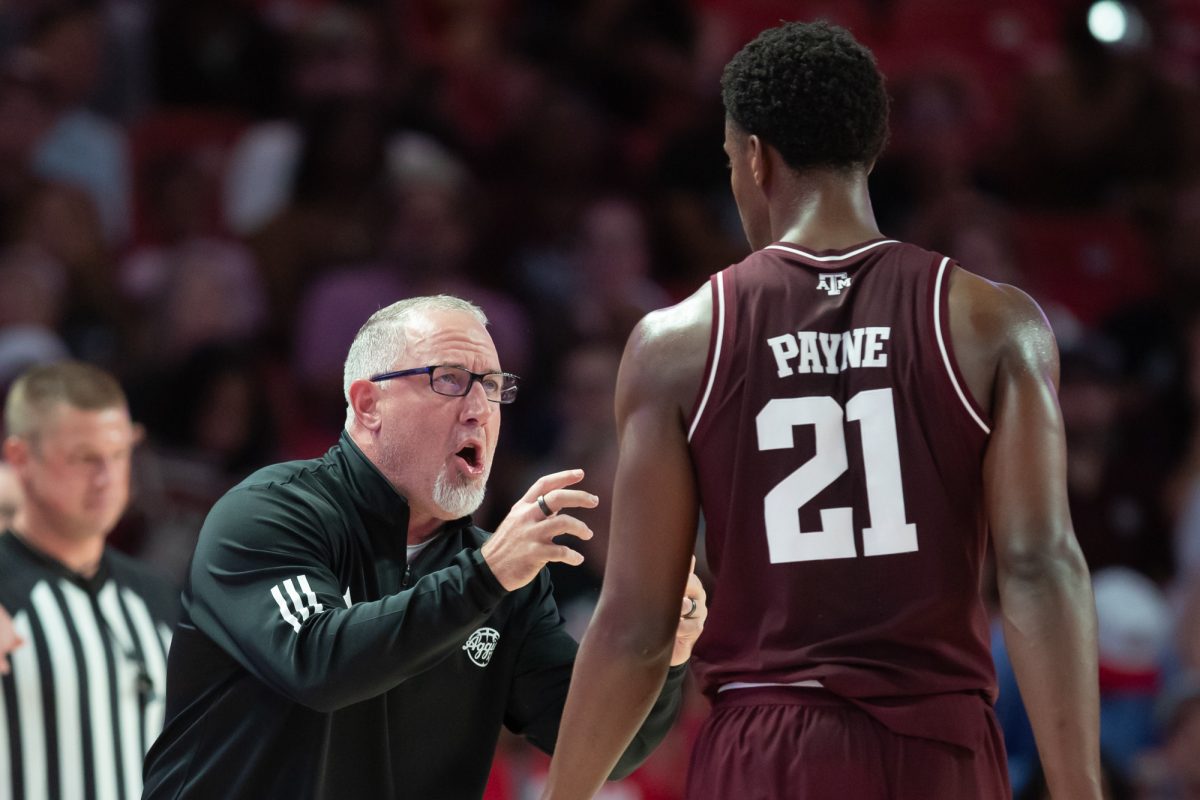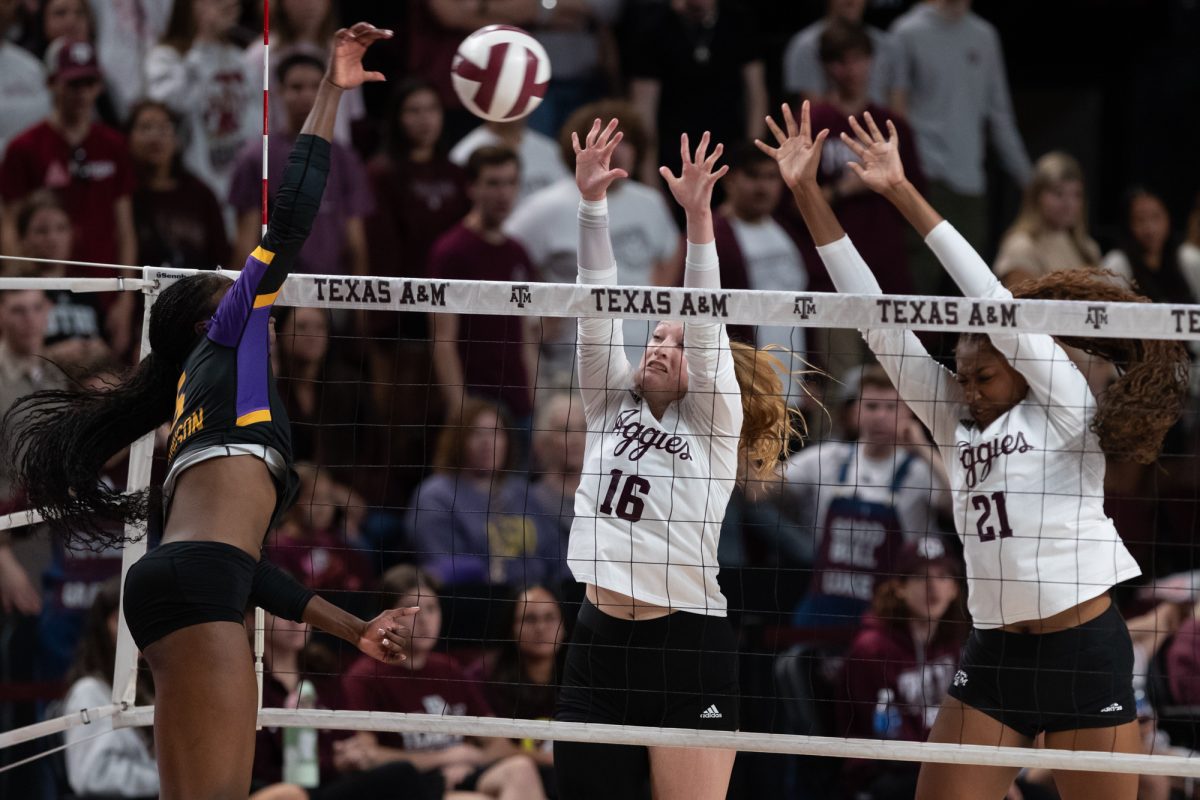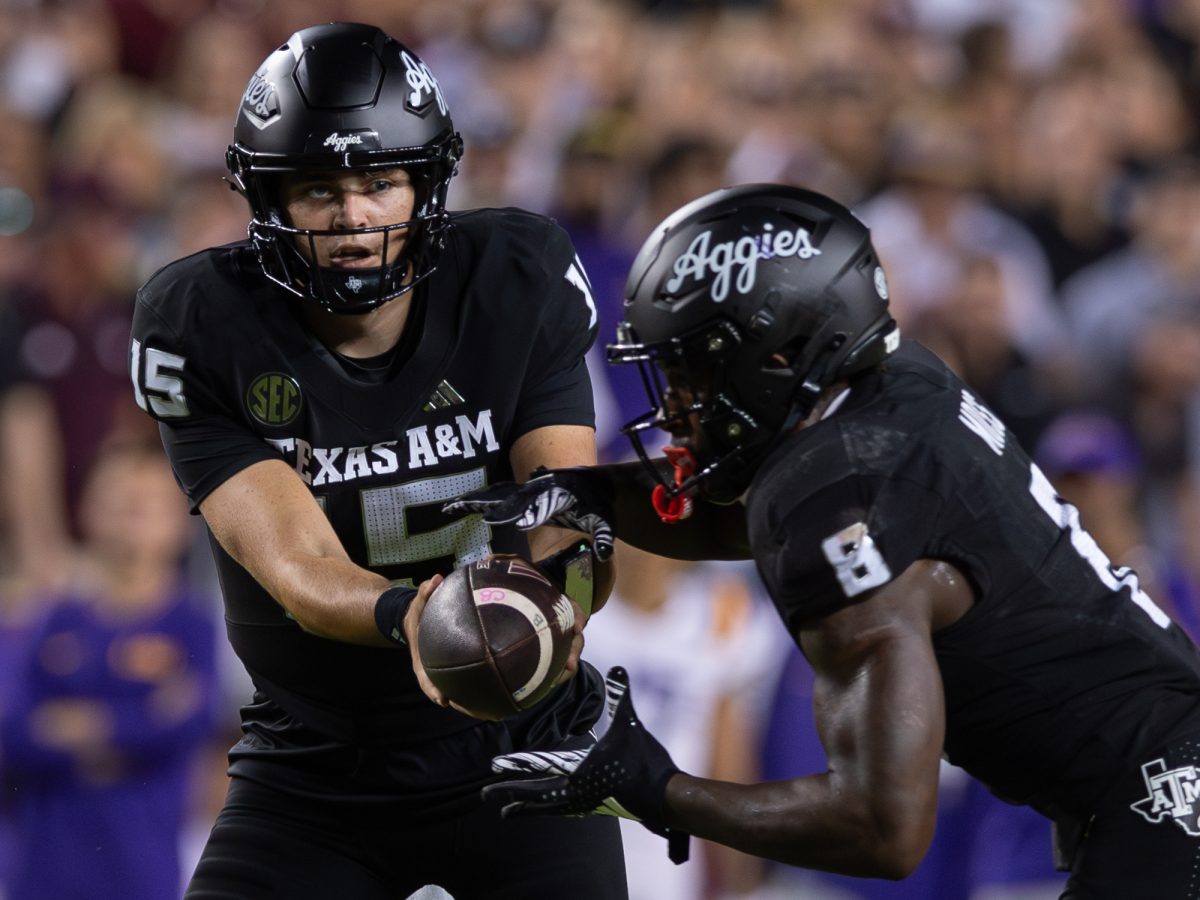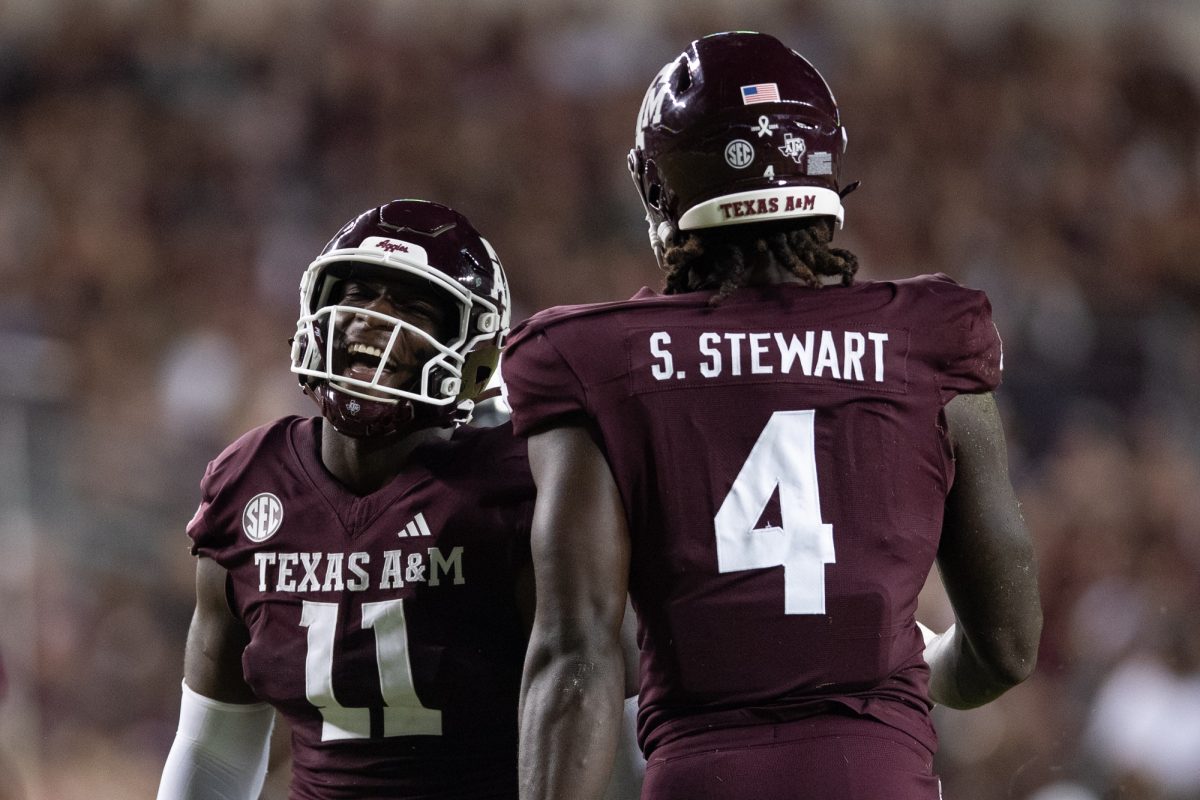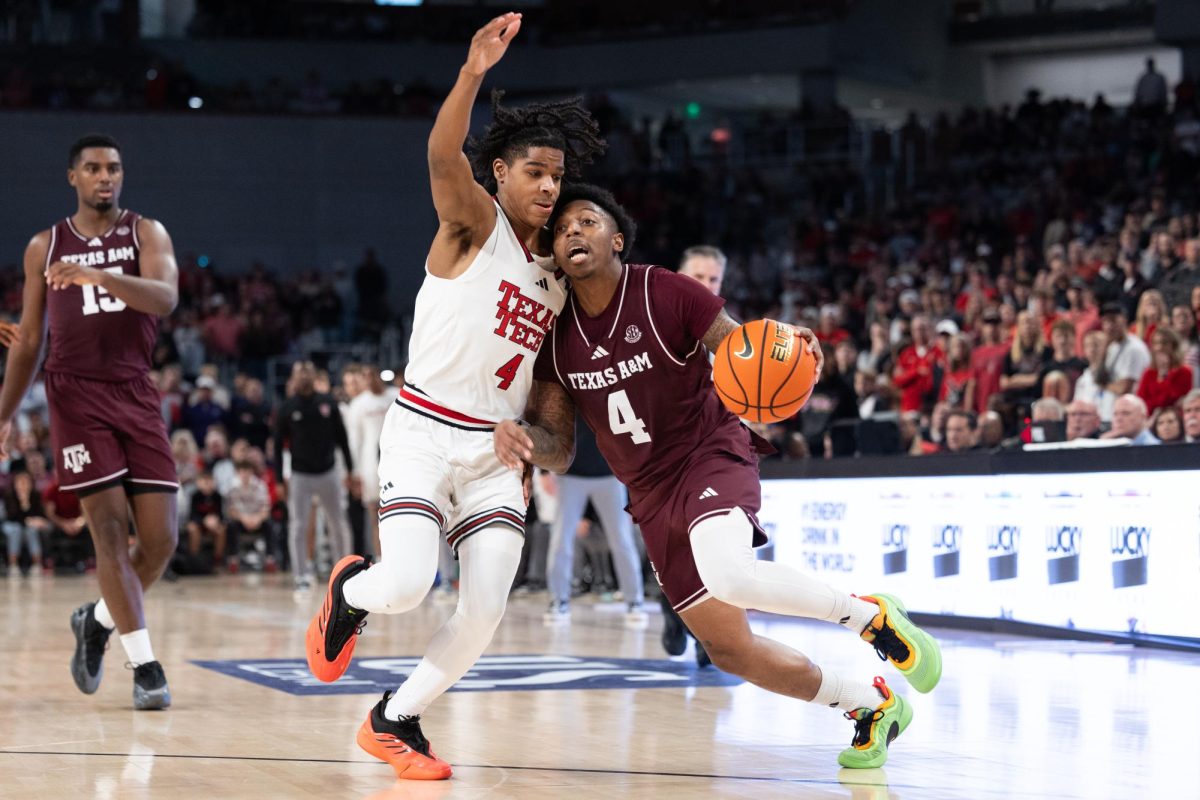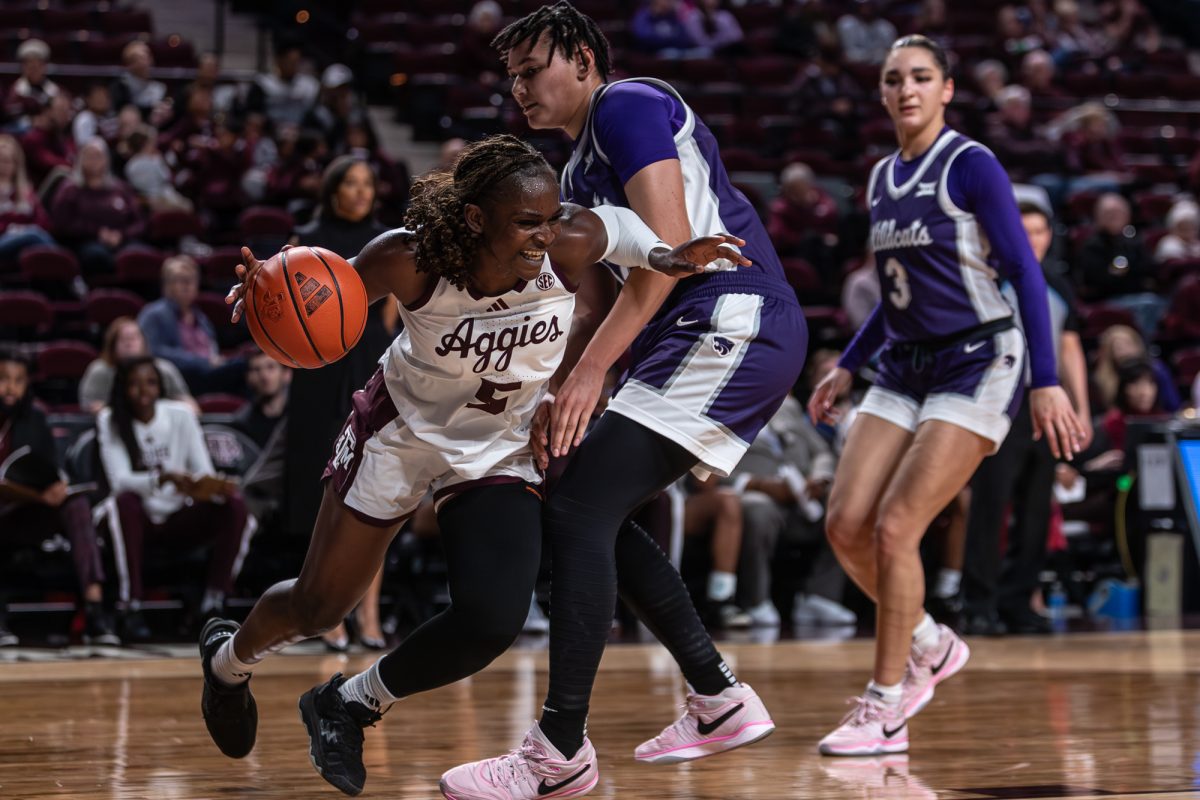Transitioning between tiers of athletic competition can require a particularly unpleasant but unfortunately necessary series of growing pains. Within the high-pressure arena of college sports, these adaptations can embody anything from an amended mental strategy to touched-up fundamentals.
For Texas A&M junior guard Fabyon Harris, his transfer from the College of Southern Idaho has demanded all of the above.
Due to the sudden increase in talent, game-speed and overall pressure of Division I basketball, Harris has been forced to evolve his previously unstoppable on-the-court skills.
Earlier in the season, A&M head coach Billy Kennedy commented on the struggles his junior college transfers Harris and junior forward Andrew Young have had adjusting to the high-level competition.
“Sometimes it takes a year or so [to adapt], Kennedy said. Defense and the speed of the game is a big adjustment for them. Both of them scored a lot of points at that [junior college] level. We would love for them to score all those points, but they’ve got to play defense, too. They need to learn to play unselfishly. That takes time.”
Just a season prior, Harris was the team captain and leading scorer at Southern Idaho.
During a standout sophomore season playing for the Golden Eagles, Harris earned NJCAA Region 18 Player of the Year honors behind his 17.1 points per game. The young point guard knocked down a strong 41 percent of his shots from beyond the arc, guiding Southern Idaho to a Scenic Western Athletic Conference title and a 31-5 (13-2) record.
From the perspective of Golden Eagles head coach Steve Gosar, Harris contributions both on and off the court were invaluable.
Fabyon has a knack of getting a ball in the basket, Gosar said of his former star. He just has a will and a passion to win. He hit so many big shots, some of which were game winners. He really did a great job scoring the ball but also was a great leader and team captain he set an expectation for success here.
Soon after transferring from the Southern Idaho hardwood to the high-caliber Division I court at Texas A&M, Harris found his transition from the go-to shooter to a supporting role somewhat aggravating.
“I’m getting better and seeing that it’s not all about me, Harris told The Eagle. That’s the hardest part. I’ve never been this frustrated about basketball.”
Initially, Harris growing pains led to inconsistent play as he kicked the year off strong with three double-digit scoring performances before following with single-digit showings in five out of the next six games.
Behind the persistence of Kennedy and his staff, however, the Chicago native has matured into one of the teams strongest role players, racking up 11 points per game (second on the team), 1.2 steals (second) and a .424 three-point percentage (first).
When asked about Harris growth, Kennedy simply called it tremendous.
The things that he does best, besides obviously making some shots when we need him to score, was his shot selection and his ability to play the point and not turn it over or take a bad shot, especially in tough games and pressure situations, Kennedy said of Harris following the Kentucky upset. Hes played much more under control and showed his experience. When he gets double figures, it gives us a chance to win.
Harris will help lead a stumbling A&M squad against conference rival No. 21 Missouri on Thursday in Reed Arena. Dropping five of the past six games, including Saturdays heartbreaking 72-68 home overtime loss to Kentucky, the Aggies hope to rebound with a victory over the Tigers.
Growing Pains
February 5, 2013
0
Donate to The Battalion
Your donation will support the student journalists of Texas A&M University - College Station. Your contribution will allow us to purchase equipment and cover our annual website hosting costs.
More to Discover



